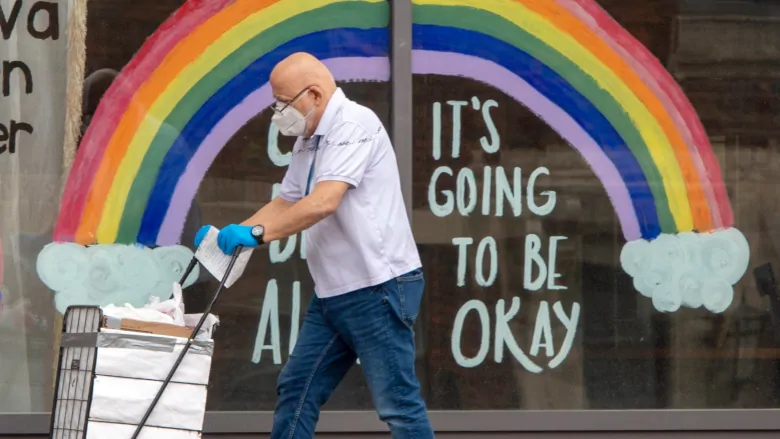COVID-19 has shown us exactly why we need the curiosity, openness and, above all, the humility to be able to lean on the experience of others and learn from it, writes Mark Sakamoto.

This column is an opinion by Mark Sakamoto, executive vice-president of international digital health company Think Research, and author of the bestseller Forgiveness, A Gift from My Grandparents, which won CBC Canada Reads in 2018. He hosts and is the executive producer of Good People, a docuseries that explores humanity’s most pressing challenges and innovative solutions. For more information about CBC’s Opinion section, please see the FAQ.
Across Canada, we’re all contemplating what a return to some version of our old lives is going to look like. Governments are grappling with how to make the right decisions — to move slowly enough that we don’t see an uncontrollable second wave of disease, but quickly enough to not hold down our economy unnecessarily. It’s an unenviable position to be in.
The good news is that Canada doesn’t have to do it alone.
This pandemic has highlighted how our globalized and deeply interconnected world can be so vulnerable to a virus. How quickly and widely it can spread — to devastating effect.
However, it has also shown us that our knowledge and expertise and hope can be shared just as quickly. We can, and are, looking to other jurisdictions around the world where things have gone right. We are learning from them.
In my day job, for example, I run a health technology company that specializes in creating clinical content for hospitals that can be shared and improved and then shared again. It has been incredible to see how doctors and nurses have been doing this during the pandemic. They’re taking time out of their punishingly busy days on the front lines to offer up their experience so that colleagues elsewhere can learn from it.
Hospital admission is a critical decision point, for instance. Sharing knowledge means that a hospital in St. Anthony, N.L., can learn from a hospital in Mississauga by finding out exactly what they’re doing when admitting a patient with COVID-19, and then turn around and use the information to improve their own process — and vice versa. In fact, we’ve noticed that hospitals have been sharing this same specific type of content back and forth between each other thousands of times as doctors learn more about how to best handle the disease.


